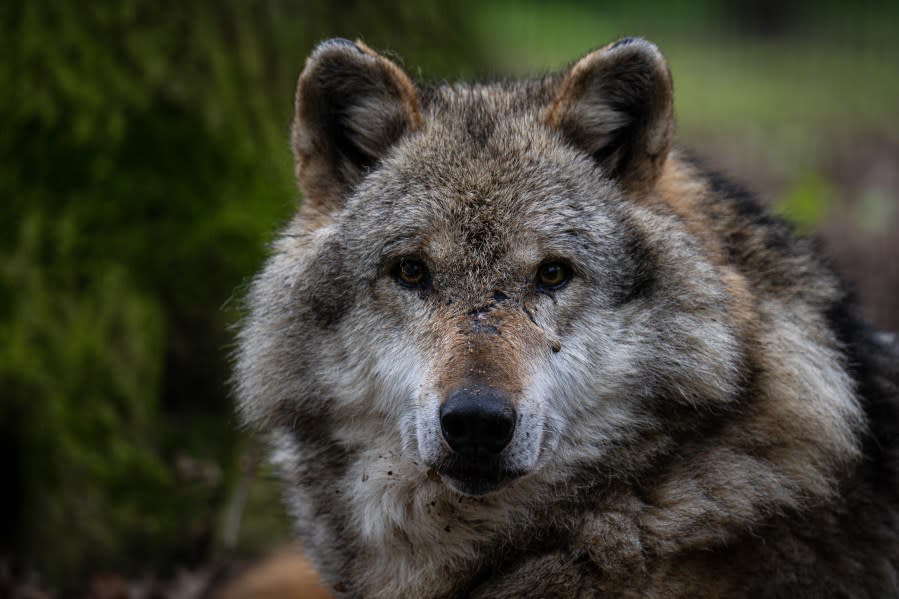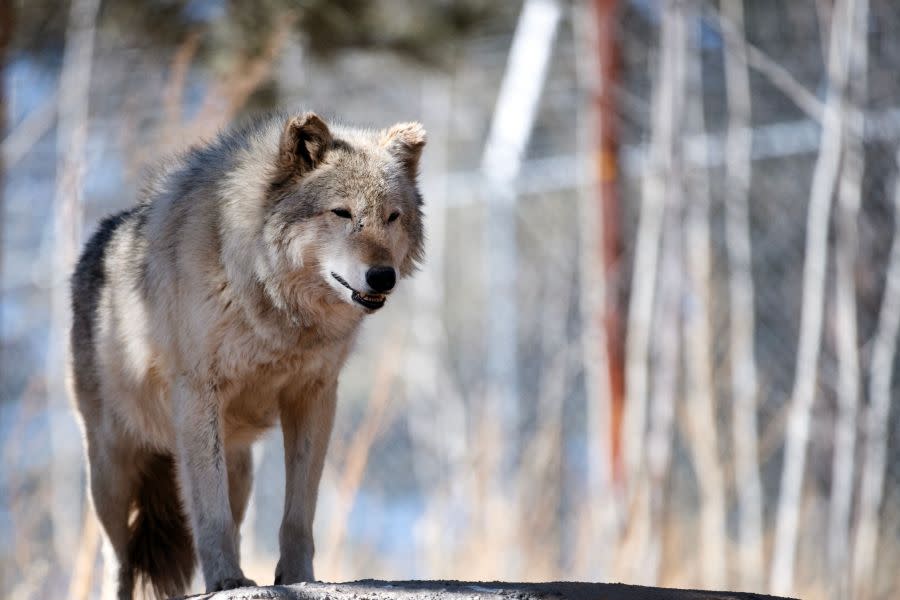How lawsuits seeking to restore protections for wolves in the northern Rockies could affect Utah

SALT LAKE CITY (ABC4) — Coalitions of conservation groups sued the U.S. Fish and Wildlife Service and the Bureau of Land Management this week seeking to restore protections to gray wolves in several Western states, including a portion of northern Utah.
The two similar lawsuits were filed Monday in federal district court in Montana, and both argue that newly loosened hunting policies in northern Rocky Mountain states, specifically Montana and Idaho, threaten to decimate wolf populations across the region.
See a hairy, spongy egg sack? Smash it and alert Utah officials — And here’s why.
“We’ve invested decades in recovering wolves to this region, and that all could be lost unless federal protections are restored,” said Colette Adkins, carnivore conservation director at the Center for Biological Diversity, the leading plaintiff in one of the lawsuits.
The lawsuits come following a 2022 ruling in which Endangered Species Act protections were restored to wolves across most of the continental United States, except for in the northern Rocky Mountain region. This area includes Montana, Idaho and Wyoming, as well as parts of Washington, Oregon and a corner of northern Utah.

In this region, wolf management is done by the states, where many ranchers feel they bear the cost of wolves being reintroduced to the landscape. In Montana, for instance, local laws currently allow a single hunter to kill up to 20 wolves each year. In Idaho, hunters can get an unlimited number of wolf tags, and in most of Wyoming, wolves can be killed without a license and basically at any time.
Conservation groups argue that these kinds of policies are leading to hundreds of wolves being killed each year through hunting, trapping or conflict with humans. They say that this will lead to increasingly isolated wolf populations that won’t be sustainable as the packs will fall victim to genetic diseases.
ABC4 reached out to the FWS and the BLM for comment, and the BLM responded saying that it doesn’t respond to pending litigation. However, earlier this year, the FWS denied a petition from conservation groups to restore protections to gray wolves in the northern Rockies and other Western states, instead proposing a national recovery plan for wolves that will take shape in the coming years.
‘A culture of hostility’
Recently, the death of a wolf from the northern Rocky Mountain region made headlines, sparking outrage across the country.
According to the Cowboy State Daily, a Wyoming hunter hit a wolf with a snowmobile in February, disabling the animal. He then taped its mouth shut and paraded it around a bar before killing the animal outside. Photos of the hunter posing with the captured wolf were published this month.
According to the news site, the hunter was cited for possessing a live wolf, a $250 fine. He was not charged with cruelty toward the animal, as it was killed in one of the state’s “predator zones.” In Wyoming, animal cruelty laws only apply to domestic animals and pets, not predators.
To Adkins, this episode is a byproduct of Wyoming’s policy toward wolves, which, in her words, boils down to viewing “any good wolf as a dead wolf.”
“It creates a culture of hostility and hate there towards these really important animals,” she said. “It’s heartbreaking.”
If the wolf was protected under the Endangered Species Act, as it is across most of the U.S., the hunter would face steep penalties, perhaps even jail time.
What do these lawsuits mean for Utah?
Only a small corner of northeastern Utah is considered part of the northern Rocky Mountain region, where federal protections don’t apply to wolves.
Still, wolves aren’t allowed to be hunted in the Beehive State, said Faith Heaton Jolly, spokesperson for the Utah Department of Natural Resources.

Should the conservation groups get their way, it would simply mean that wolves would be federally protected across all of Utah.
It should be noted that Utah has no established wolf packs. According to Heaton Jolly, wolves occasionally wander into the Beehive state, and there are rare instances of cattle depredation.
What are wolves good for?
According to Adkins wolves are “terribly important pieces of the ecosystem.”
She said that wolves make elk and deer herds more resistant to disease by taking out weak and sick individuals. Additionally, she noted the predators also improve riverbanks and shorelines by keeping ungulates from grazing too long in a single place.
Wolves once roamed across most of North America, from the Arctic tundra to Mexico. But extermination programs and loss of habitat led to their disappearing from the landscape across almost all the Western U.S.
In 1973, the northern Rocky Mountain wolf was federally listed as an endangered species, and in the 1900s, wild wolves were released in Yellowstone National Park, a designated recovery region. The wolves grew in population and expanded outside of the park’s boundaries.
In the lawsuit filed by the Center for Biological Diversity, the document cites figures from the U.S. Fish and Wildlife Service, noting that in 2022, 422 wolves were killed in Idaho, 302 wolves were killed in Montana, and 77 wolves were killed in Wyoming. Similar figures were reported the year before.
Bald eagle shot near Cedar City, DWR seeks answers
Killing at such rates, the lawsuit argues, not only harms wolves in the northern Rocky Mountain region, but it also hurts wolves in areas where recovery efforts are underway, such as Colorado. These fledgling populations will depend on wolves from the northern Rocky Mountain region to join their packs and enhance their genetic diversity.
Earlier this year, 10 wolves were released into Colorado’s high country. According to Heaton Jolly, if those wolves wander into Utah, the Division of Wildlife Resources will try to capture them and return them across the border.
For the latest news, weather, sports, and streaming video, head to ABC4 Utah.

